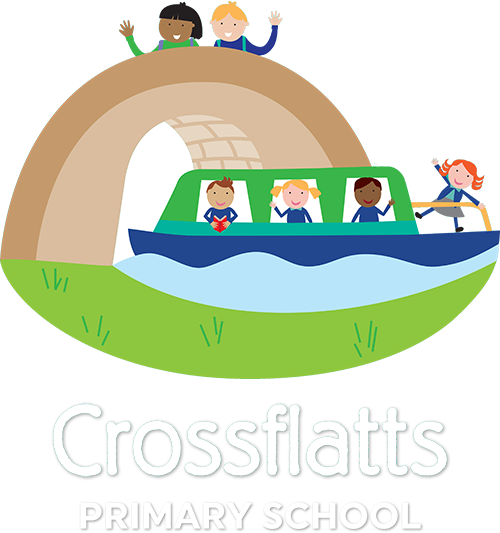Collective Worship at Crossflatts
Worship is an important part of our school’s life as it gives us the opportunity to celebrate, as well as encourage our pupils and staff to think about their place in the world through Spiritual, Moral, Social and Cultural development. We will not shy away from our responsibilities in enabling children to think deeply about themselves, the world in which they live and the place that faith has in our society.
Collective Worship is part of each of our pupil’s education and is inclusive of, and accessible to, all children. Collective Worship is not the same as corporate worship (that which happens in a place of worship) and spirituality is not synonymous with religious belief. Collective Worship brings together a group of pupils who may or may not have a religious faith.
In line with the 1988 education reform act, and Education Bradford RE Syllabus/Framework we normally base our assemblies on the teachings of Christ and the Christian Church. However, we conduct our assemblies in a manner that is sensitive to the individual faith and beliefs of all members of the school. While the majority of acts of worship in our school are Christian, we also hold assemblies that reflect other religious traditions and festivals that are represented in the school and the wider community.
Collective Worship at Crossflatts Primary School:
-
makes values explicit
-
challenges pupils’ thinking
-
builds community and personal identity
-
helps pupils know and celebrate who they are and who they might become
-
encourages hope and aspiration
-
marks significant occasions of celebration and commemoration
-
provides time for reflection
-
makes a significant contribution to the spiritual, moral, social and cultural development of pupils, particularly spiritual development.
We believe Collective Worship has the greatest impact when it is:
-
more than assembly (coming together as a group)
-
creative, relevant and engaging
-
carefully planned and evaluated
At Crossflatts Primary School we believe Collective Worship can:
- Encourage children to experience awe, wonder and mystery
- Encourage children and young people, whether or not they belong to a religion, to increase their sensitivity to the mysteries of life and to provide opportunities to reflect upon these mysteries and the fundamental questions of existence
- Raise awareness of transcendence (the possibility of the existence of a Supreme Being or God) and provide opportunities to worship God
- Allow children to express their faith (if appropriate) and to explore their own beliefs, in a school setting
- Develop an appreciation of the infinite variety in the natural world and develop an understanding of the need for stewardship (e.g. conservation/environmental responsibility)
- Encourage children to identify the difference between right and wrong
- Encourage children to examine the impact of their own actions on others
- Help children to develop self understanding and empathy for others
- Encourage the sharing of achievement and successes in school, personal and community life
- Foster a sense of community and fellowship, a cohesive experience, bringing pupils together to celebrate the shared ethos of the schooland the wider community
- Provide opportunities for celebration, thanksgiving and the sharing of experiences and emotions e.g. joy, hope, friendship, fear, anguish, forgiveness.
